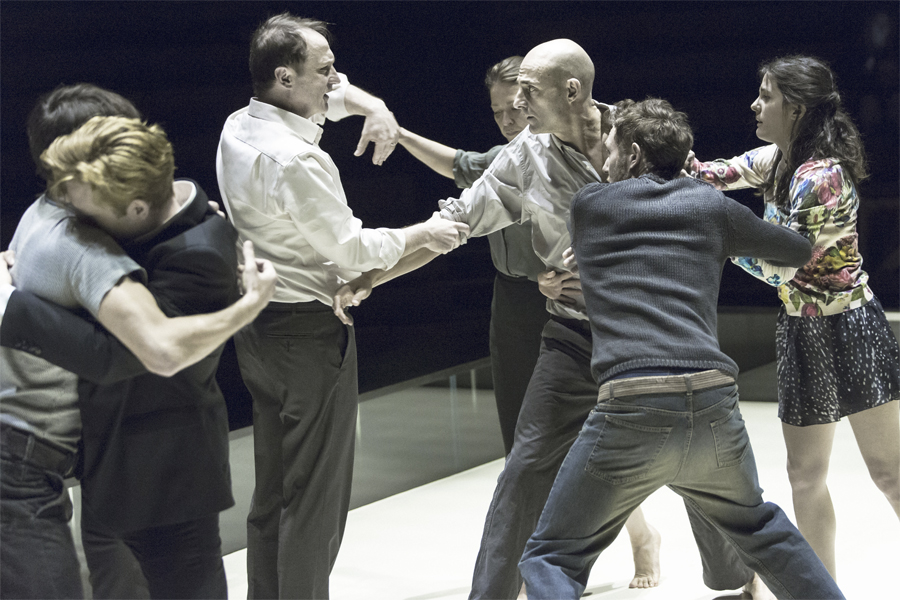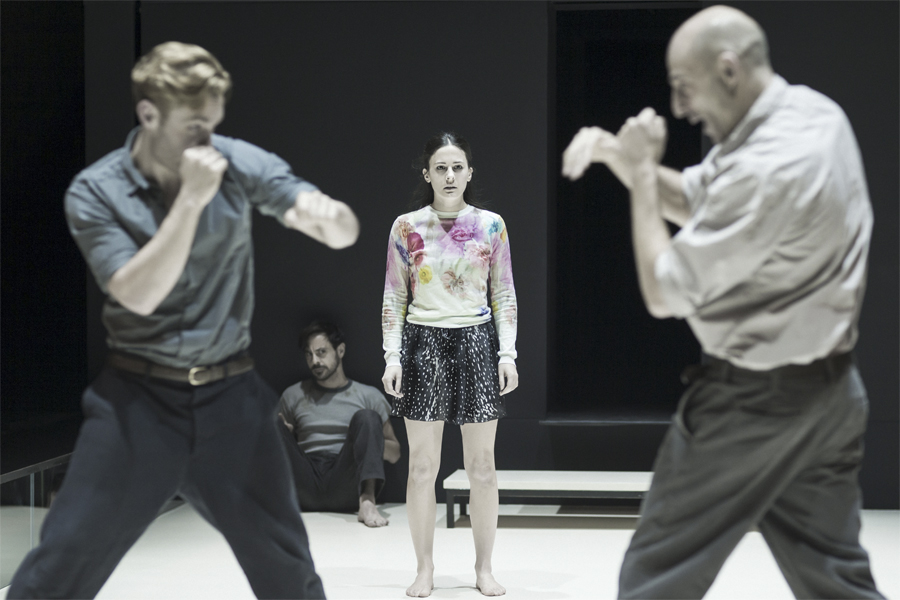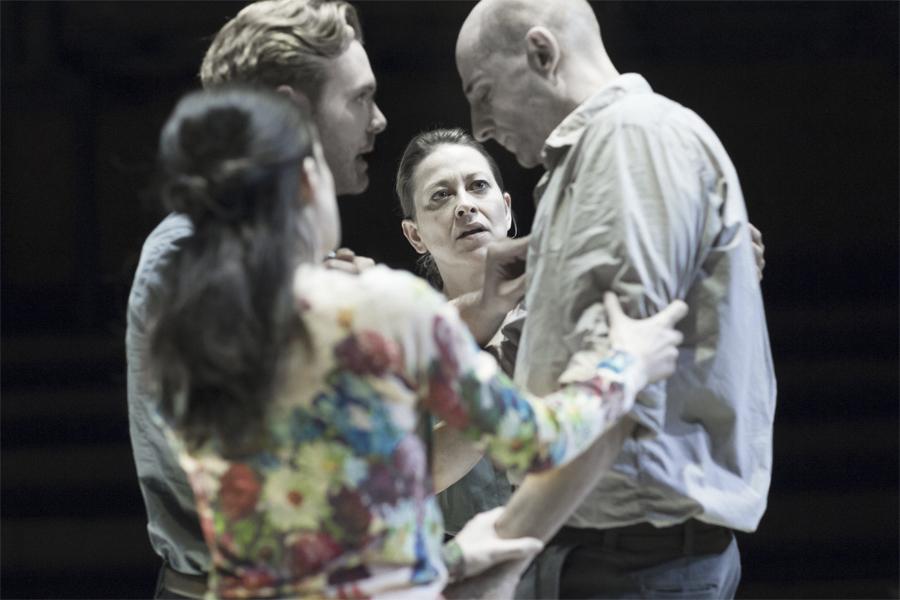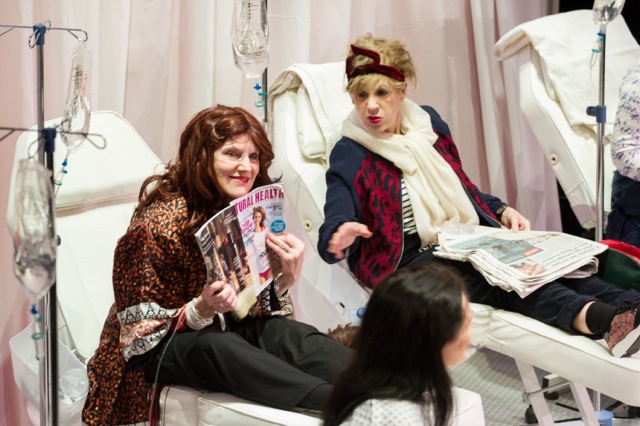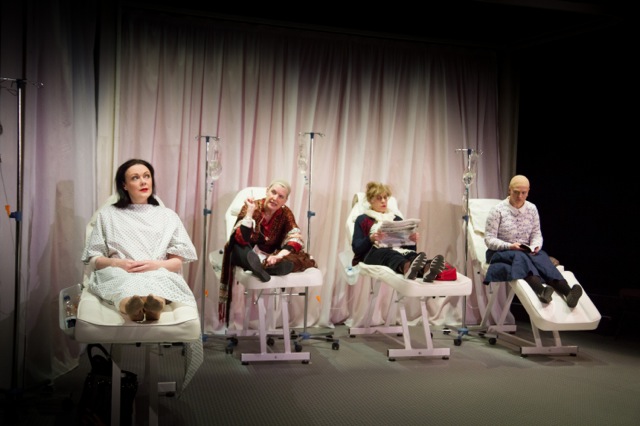 As a brand new Mahogany Opera Group production of Hans Krása's Brundibár, the 1938 short children's opera famously performed in World War II concentration camp Terezin (German Theresienstadt), comes to the Southbank Centre's Imagine Children's Festival this February, Ela Weissberger (pictured), who created the role of the Cat spoke to Judi Herman before she left her New York home to address the Scottish Parliament for Holocaust Memorial Day.
As a brand new Mahogany Opera Group production of Hans Krása's Brundibár, the 1938 short children's opera famously performed in World War II concentration camp Terezin (German Theresienstadt), comes to the Southbank Centre's Imagine Children's Festival this February, Ela Weissberger (pictured), who created the role of the Cat spoke to Judi Herman before she left her New York home to address the Scottish Parliament for Holocaust Memorial Day.
When did you arrive in Terezin?
"I came 12 February 1942. I was one of the first children in Terezin and I stayed there three and a half years, till the end."
Did you come to Terezin with your parents?
"I came with my mother because when it was Kristallnacht my father offered money to whoever would kill Hitler and they put him on a black list and the next day they came to pick him up – we never saw him again. My mother was 31 years old."
How did you get cast in Brundibár?
"I was singing in a children's chorus in a synagogue in Prague, so singing for me was very wonderful. And friends of my uncle always said that I should sing, as my child's voice was beautiful for them. I didn't think so, but for them it was! When I came to Terezin, and to the children's home there [as men, women and children were quartered in different barracks], the youngest composer in Terezin was Gideon Klein. He also played the piano and played for 55 performances when I was in Brundibár. He played the piano and was also the one that was writing for us Hebrew songs. So we started singing in the children's room and the Nazis let us. We were allowed to sing and play and because of that there were some poems that were written in Terezin. Brundibár and the poems and our children's paintings with Friedl Dicker-Brandeis [the Austrian artist and educator who was killed in Auschwitz, 9 October 1944], is the only legacy of the Terezin children.
"I was chosen when Rudi Freudenfeld smuggled in the piano score of Brundibár. He was the son of the director of the Jewish orphanage in Prague. So Hans Krasa was able to redo the music for us and one day they said that if somebody knows about talented children in music we should try out for parts in Brundibár. So when it came my turn, Rafael Schaechter, who took the music in Terezin and was famous for playing Verdi's Requiem there – he knew me when I was eight years old – so when I came to try out for Brundibár, he said, 'You will be the cat'.
"My mother was a real music lover, and my father, and they went to the opera and all that before the war so she was so happy that I got the part of the cat. I came to my mother and said, 'You know, ma, I will be the cat in the opera', And my mother was wondering, 'what cat in the opera? I don't think there's an opera with a cat', so she didn't believe me! But I loved it. You know I think I was born a little show-off!"

What costume did you wear?
"I had my sister's ski pants, my mother's black sweater, and I wasn't allowed to wear shoes because the cat had to be very quiet. Also Frantisek Zelenka [the production designer] was from the National Theatre of Prague and his fantasy was something unbelievable. Somehow they didn't cut the back of my hair, but split it and made it almost like ears for me. And then he had a little box left over of black shoe polish and with that he made me my whiskers and he covered my feet a little because they were so white. He didn't understand when I told him I was having such a hard time wiping it off because we didn't have soap. Only once a month we were able to take a hot shower and this was for just five minutes with two people under the shower at once."
Everybody in the camp loved to come and watch Brundibár and understood the message – that the evil organ grinder Brundibár was a thinly disguised Hitler. Did you play to rapt audiences and give people some feeling of fighting back, of defiance?
"In Terezin the people in the audience were singing with us. They used to clap and stamp their feet and we used to repeat it a couple of times with them, the Victory Song [the number in which the children and animals celebrate their victory over Brundibár]. In the Czech Republic audiences still do that. Here in America, only when I am in Los Angeles with the opera, first we are two people and when we start to clap, then others start to clap with us!"
Ela Weissberger wrote a book about her time in Terezin called The Cat with the Yellow Star, which was first published ini March 2006, but has been re-published in a new edition this month. "You know I still have my original Jewish star," she says.
By Judi Herman
The Mahogany Opera Group's production of Brundibár runs Saturday 18 - Sunday 19 April. 7pm (Sat), 3pm (Sun). £10, £8 children. Watford Palace Theatre, 20 Clarendon Rd, WD17 1JZ; 019 2323 5455. www.watfordpalacetheatre.co.uk
Watch a trailer of the show here:
https://www.youtube.com/watch?v=B2TJbNdvrt0




